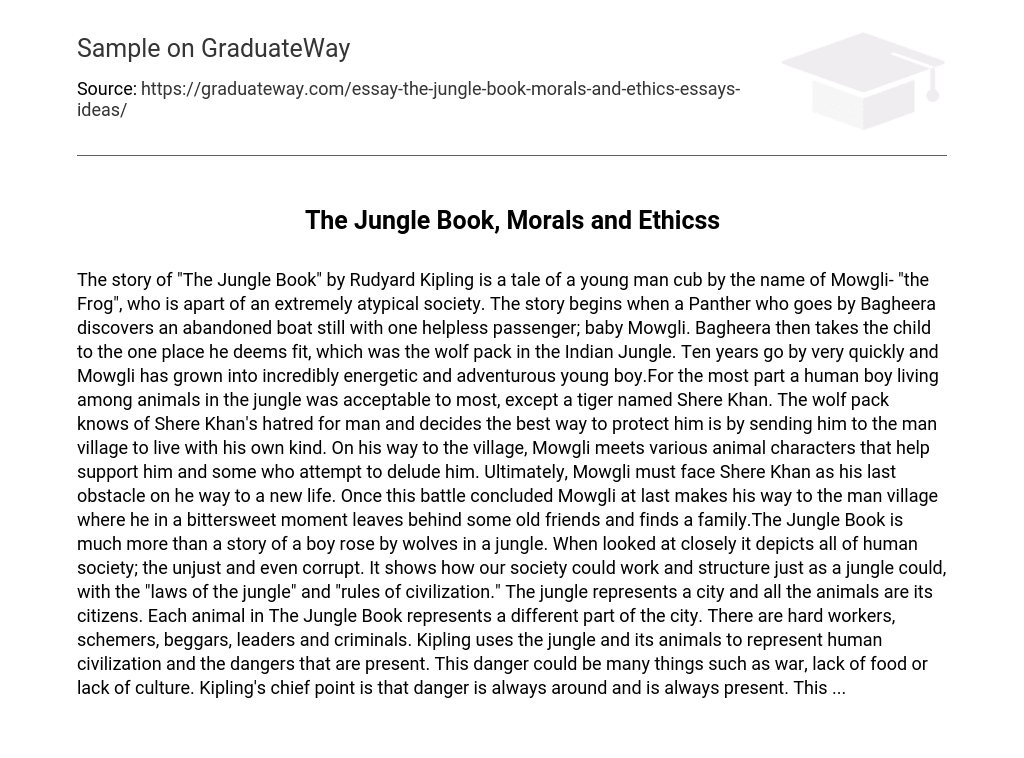“The Jungle Book” by Rudyard Kipling tells the story of Mowgli, a young man cub known as “the Frog”, who is a part of a highly unconventional society.
Bagheera, a Panther, discovers an abandoned boat with baby Mowgli. Bagheera takes Mowgli to the wolf pack in the Indian Jungle. After ten years, Mowgli grows into an energetic and adventurous young boy. Most animals in the jungle accept him, except the tiger Shere Khan, who hates humans. The wolf pack decides to send Mowgli to the man village for his own protection.
During Mowgli’s journey to the village, he encounters different animal characters who either assist or deceive him. His final challenge is facing Shere Khan before starting a new life. After this fierce battle, Mowgli finally reaches the man village and experiences a bittersweet moment as he bids farewell to old friends and discovers a new family. The Jungle Book goes beyond being a mere tale about a boy raised by wolves in the jungle. Upon closer examination, it mirrors various aspects of human society, including injustices and corruption.
The text illustrates how society and a jungle share similar structures, showcasing the existence of “laws of the jungle” and “rules of civilization.” In this comparison, the jungle symbolizes a city, with the animals representing its inhabitants. Each animal within The Jungle Book embodies distinct characteristics found within the urban landscape, including diligent laborers, cunning individuals, needy individuals, influential figures, and wrongdoers. By utilizing the jungle and its creatures as metaphors, Kipling conveys the complex nature of human civilization and the inherent hazards it entails. These dangers encompass various aspects like warfare, scarcity of sustenance, and lack of cultural development. Kipling fundamentally emphasizes that peril is ever-present and constantly looming.
This …





